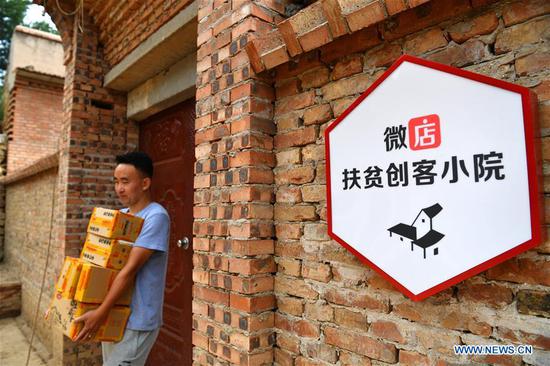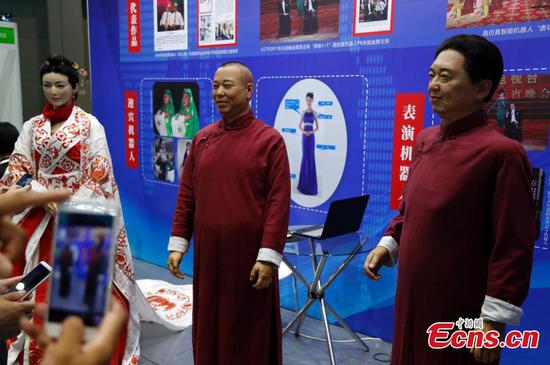Companies from China and the United States are concerned about the impact of trade tensions between the world's top two economies after the United States began imposing a 25-percent additional tariff on Chinese products worth 34 billion U.S. dollars Friday.
China's customs authority announced that additional tariffs for some imports from the United States worth the same amount, including agricultural products, vehicles and aquatic products, also took effect on the same day.
Chinese manufacturers and U.S. businesses operating in China have expressed concerns that the United States launching of the largest trade war in economic history could impact the global trade order and inflict losses to U.S. consumers as well as industry and commerce firms on both sides.
"We are deeply concerned over the escalated trade tensions between the United States and China," said Bruce Blakeman, vice president of corporate affairs in Asia Pacific at U.S. agribusiness company Cargill. The transnational company has many branches and plants across China.
There are no winners in a trade war and tariff measures will not solve the concerns of the U.S. government, according to companies.
Harley Seyedin, president of the American Chamber of Commerce in South China said that the American Chamber of Commerce in South China and the U.S. Chamber in Washington continue to believe that the move puts all the burden on American and Chinese companies and consumers.
"If the status-quo is prolonged, it will have a long lasting negative impact on free and fair trade between our nations as companies affected will begin to look for alternative sources to fulfill their product needs."
Sources of two international leading container shipping companies told Xinhua they estimated the ripple effect of the China-U.S. trade dispute to emerge in the second half of the year.
The company will cancel the business of two cargo ships next month, said an executive of one of the shipping firms, who is in charge of business in south China.
"Imposing additional tariffs will increase the costs of Chinese companies in exports to the U.S. and thus make them face greater competition pressure," said Xiao Feng, deputy general manager of Shenzhen-based OneTouch Business Service Ltd., a subsidiary of e-commerce giant Alibaba Group.
"But on the other hand, it is difficult for U.S. distributors to find substitutes as Chinese products have reasonable prices and good quality. In the end, either the demand will be cut or the prices will be lifted in the U.S. market."
"The two choices will either impact the supply chain or let consumers take the consequences. Both are terrible results."
"The U.S. clients have already told us they would adjust the prices," said an executive of an equipment manufacturing firm with exports to the U.S. in Guangdong.
Dongguan Excel Industrial Co. Ltd, another company in the province, is affected by the U.S. list of Chinese products for additional tariffs. The company's two major U.S. clients hold a wait-and-see attitude.
"One client believes the prices will inevitably hiked, which will lead to the fall of consumption demand, while the other also considers cutting the types of products on the market," according to Wu Tianwen, chairman of the company.
"It is nothing good. None of Chinese and American companies or consumers will benefit [from the dispute]."
China's Ministry of Commerce warned the U.S.-initiated trade war will hamper global economic recovery and trigger global market turmoil while dealing a blow to many multinationals, enterprises and ordinary consumers.
Recent U.S. protectionist measures have also triggered opposition and counter measures from a number of countries.
China lodged an additional complaint with the World Trade Organization Friday over tariffs formally implemented by the United States based on a trade investigation against China under Section 301.
Imposing additional tariffs will not stop the upgrade of China's manufacturing industry, say Chinese entrepreneurs.
Luo Rihui, executive director of an automation firm in Guangdong, said: "The trade dispute prompts domestic companies to speed up efforts to look for local suppliers of core parts and further enhance their strength to tap the market.
"Now, many companies seek cooperation with us. We believe we will see faster development."


















































